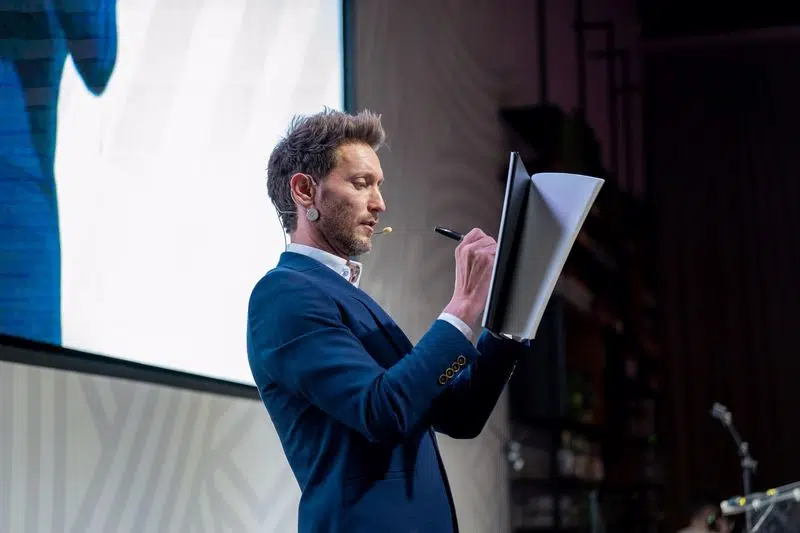
Are There Senses that a Sensory Artist Cannot Influence?
In recent years, you’ve probably heard a lot about sensory artists and the captivating and unique field of entertainment of sensory art and mentalism. But what exactly does it mean? Most of the sensory art segments you’ve seen, on television or at shows, do not include all of the five main senses. So does that mean that there are senses that a sensory artist cannot influence when performing before participants and audiences in mentalism and sensory art segments?
Well, like many things in life, especially in the dynamic and diverse entertainment industry, the truth is a bit complex and it isn’t necessarily possible to provide a simple, direct answer to the question of whether a sensory artist can in fact influence all five senses. Below, we’ll explain and demonstrate how there are mentalists and sensory artists (led, of course, by the top master mentalist in the world, Lior Suchard) who can definitely perform advanced, impressive exercises in which they influence the sensory perception of each of the five primary senses, while others in the field of sensory art don’t really achieve similar results.
What are our senses?
In general, the widespread perception is that people have five primary senses: sight, hearing, touch, taste, and smell. Beyond those, science has pretty much agreed today on a model that suggests that humans have other sensory capabilities beyond those five central, primary senses, but these have more limited, specific expressions that are not like a “full” sense. Examples of such mini-senses are balance, sensing the body while in motion, and the body’s orientation in a physical space.
The human senses are defined by the ability to take in information from the person’s surroundings, from the environment, and from bodily-physical expressions, intake that is translated via a physiological process into electric signals that the human brain is able to process and convert into feelings that we connect to each of the five main senses. Thus, the sense of smell and sense of taste are essentially chemical senses that identify certain materials via designated receptors on the nose and tongue. The sense of touch and hearing are senses based on feelings of pressure and specific receptors, and the sense of sight is based on light receptors inside the eye.
Can a sensory artist influence the taste of a specific food for a participant at a show?
When exploring the sometimes-complex topic of whether there are senses that a sensory artist cannot influence, the sense of taste is always mentioned. This is because it’s a sense that seems hard to manipulate (although it is definitely possible!), and because usually, during sensory art and mentalism performances, the sense of taste isn’t usually included.
Therefore, in order to answer the primary question of this article, we will examine whether an expert mentalist or skilled sensory artist can impact the taste of a specific food, for example, despite the fact that the participant in the segment knows in advance what taste he expects that food to have – such as chocolate or another familiar, common food.
It might surprise you to hear that the truth is that yes, a professional, experienced, high-quality sensory artist, a master in this unique entertainment field, can definitely cause participants at a show to taste a different taste than they expected when eating a specific familiar food. The influence is obviously not by making physical or chemical changes to the food itself, but rather entirely using advanced techniques of sensory art and influencing the sensory perception of the participants. Similarly, it is possible to influence the sense of smell, in addition to the more familiar aspects of sensory art such as impacting the sense of sight, hearing, perception of reality, and sometimes the sense of touch too.
How does it happen? When techniques such as suggestion, guided imagery, NLP, reading body language, and transferring messages through non-verbal communication are implemented precisely and cleverly by an expert like Lior Suchard, he can literally cause participants at his mentalism show to taste a different, unexpected taste when eating familiar foods.
The bottom line: Clever, precise execution, with a lot of professionalism and of course a talent for mentalism and entertainment, can allow a sensory artist to influence all of the senses in a captivating and surprising way, in order to provide viewers with a multi-sensory, breathtaking show experience. Want to see how it happens in real life? Lior Suchard is waiting for you!








